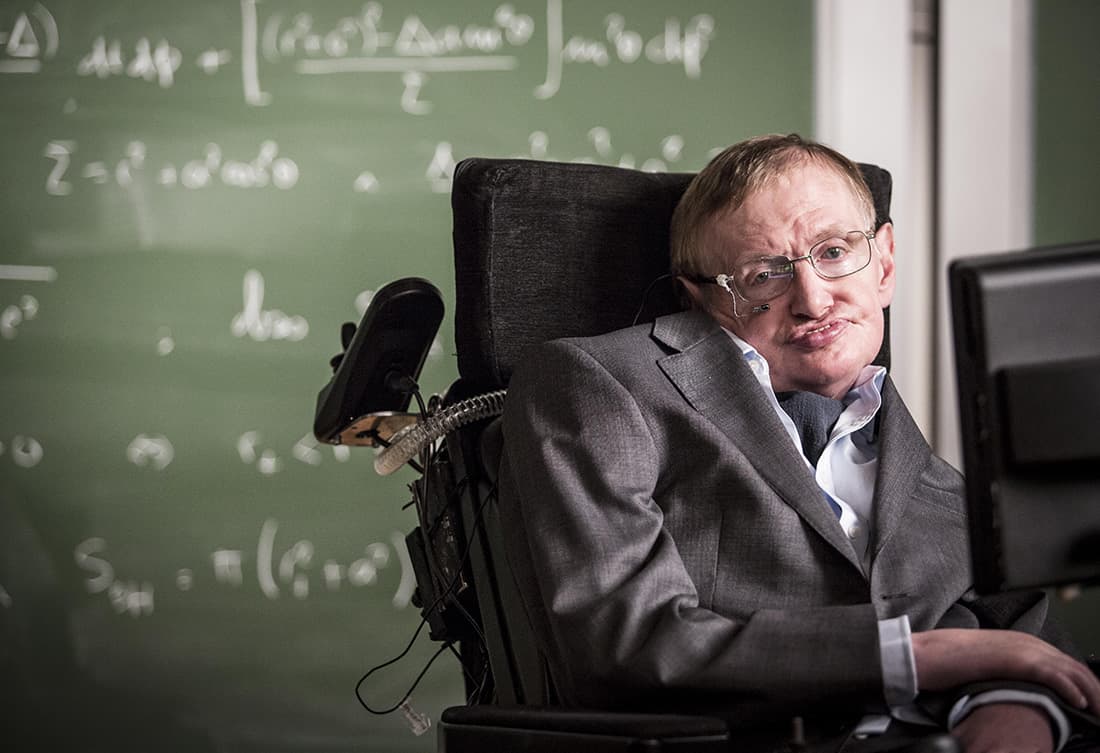An unpredictable event between 'Science & People' -
Science is our
best way of knowing what's real, beyond the desires and biases of fallible
humans. At least, it should be. But scientists are humans too, and they can
sometimes become as enamored with a pet theory as a football fan is with a
favorite team. They're also like sports fans in another way: they're known to
make wagers on the outcome. Here are seven times scientists made bets on
science — and what happened next.
1. The times physicists bet we'd find a
companion to every quantum particle -

The Higgs
boson may have been the first time the LHC found itself in a bet, but it wasn't
the last. It's also at the center of many wagers on supersymmetry,
the theory that every tiny particle that makes up our universe has an opposing
partner, which would answer many frustrating questions in physics and
cosmology. In 2000, when construction began on the LHC, seven physicists bet
that at least one supersymmetric particle would be discovered within 10 years.
The LHC's construction took a bit longer than anticipated, so the wager was
extended in 2011, and the number of physicists betting on supersymmetry
increased to 20. In 2016, the deadline passed, and the losers had to buy
the 24 winners "a bottle of good cognac" to be shared. They weren't
the only ones to lose a bet on supersymmetry: That same year, physicist Garret Lisi won $1,000 from Nobel prize winner
Frank Wilczek on a similar wager.
2. The time a SETI scientist bet that
we'd discover alien life -

In a 2012 TEDx talk, SETI Senior Astronomer Seth
Shostak bet everyone — everyone — a cup of coffee if we don't
find extraterrestrial life "in the next two dozen years." That is a
lot of java. He's keeping up his end of the bargain, too: four years
later, his promise to Futurism was 20 years.
He's got 19 years left, so in the meantime, we'll keep our eyes to the skies
and make sure there's enough creamer.
3. The time solar scientists bet
against human-caused global warming -

In 2005, solar
physicists Galina Mashnich and Vladimir Bashkirtsev had an intriguing idea: the
sun goes through cycles of increasing and decreasing activity, and it was
possible that the planet was warming not because of human activity, but because
the sun was just more active. Even better, they forecasted a period of reduced
solar activity in the coming years. U.K.
4. The time Stephen Hawking bet against
the Higgs Boson -
While it might
seem like Hawking is just an overconfident gambler, he hinted at the method
behind his madness for this one. This time, the legendary physicist bet physics
professor Gordon Kane $100 that the Large Hadron Collider (LHC), which switched
on in 2008, wouldn't find the Higgs boson, the particle that gives mass to
every other particle. At the time, he explained that his bet was more about the
hope that the universe was extra interesting than it was about the actual
chances. "I think it will be much more exciting if we don't find the
Higgs," he told the BBC. "That will show
something is wrong, and we need to think again."
Hawking lost
his bet when the Higgs boson was discovered in 2012
5. The time Stephen Hawking bet black
holes could destroy information -

You know that
part in the action movie where two former rivals team up to fight the big boss
and emerge victorious? Well, it was nothing like that when Hawking and Thorne
bet Thorne's colleague John Preskill that black holes destroyed anything that
goes into them — despite the fact that quantum mechanics says information can
neither be created nor destroyed. Hawking finally saw the writing on the wall
in 2004 when he announced that he had solved the
so-called black hole information paradox, and he gave Preskill the wager: an
encyclopedia "from which information can be recovered with ease." In
this case, it was a baseball encyclopedia.
6. The time Stephen Hawking bet against
black holes -

One weird prediction made by Einstein's
general theory of relativity is that if you compress a star's mass into a small
enough space, the laws of physics break down and you get what's known as a
singularity — the seed of what we now know as a black hole. We hadn't yet found
evidence of black holes in 1975 when scientists discovered an object called
Cygnus X-1 that looked an awful lot like it could be the first. Despite being
one of the foremost authorities on black hole theory, Stephen Hawking bet fellow black-hole expert Kip Thorne an
adult magazine that Cygnus X-1 wasn't a black hole. The evidence that it was
became incontrovertible in 1990 and Hawking conceded the bet.
7. The time a computer scientist bet
against a chess champion -
In 1968, John
McCarthy, the computer scientist who coined the term "artificial
intelligence," bet chess champion David Levy £500 (about
£8,000/$10,500 in today's money) that a computer would beat him at a chess game
within 10 years. Levy went on to beat computers in every match he played for 21
years — until he was finally defeated by a computer called Deep Thought, which
went on to become the first computer to beat a chess grandmaster.
Still, the bet was that it would happen within 10 years, and Levy won.
I Hope you
like this, so don’t forget to Like&Comment –
If you want
any additional information on my blogs then you can also say about that in
comment section below -
You can find me on:
facebook/> https://www.facebook.com/profile.php?id=100006720613977
instagram/> https://www.instagram.com/aniket15082002?r=nametag
<Copyright
Disclaimer Under Section 107 of the Copyright Act 1976, allowance is made for
“fair use” for purposes such as criticism, comment, news reporting, teaching,
scholarship, and research. Fair use is a use permitted by copyright statue that
might otherwise in infringing. Non-profit, educational or personal use tips the
balance in favor of fair use.>
Comments
Post a Comment